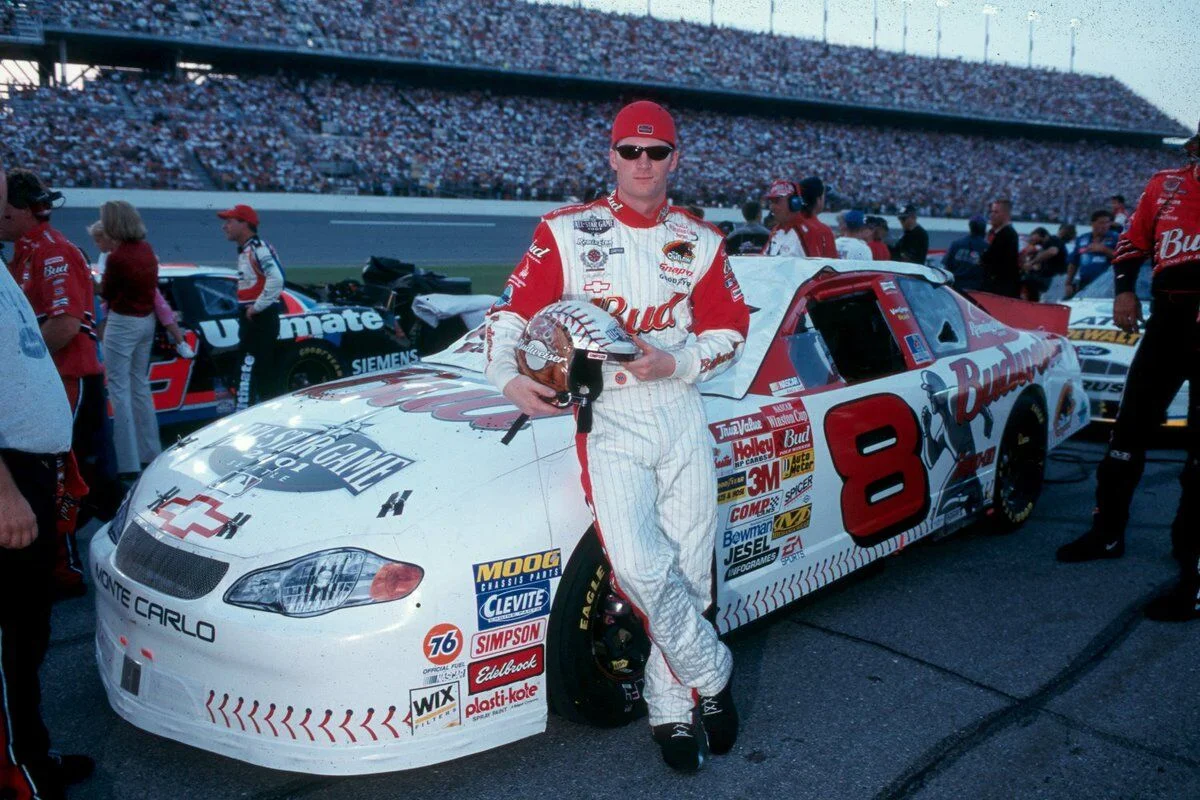Dale Earnhardt Jr. has voiced support for introducing a fourth stage at Daytona and Talladega races, aiming to address widespread dissatisfaction with current superspeedway strategies. The “Dale Earnhardt Jr fourth stage” proposal comes as NASCAR considers revising its format to counter criticisms that races have become more about fuel saving than actual competition.
NASCAR Explores Updates to Superspeedway Racing Format
Discussions regarding a potential change to stage racing at superspeedways surfaced recently, with NASCAR’s Managing Director of Racing Communications, Mike Forde, mentioning the idea during a podcast. Although he clarified that talks are not yet in advanced stages, the consideration follows mounting complaints from both fans and competitors about the dominance of fuel strategy over racing excitement at Daytona and Talladega.
At these famed tracks, drivers frequently place emphasis on conserving fuel for extended segments, only making aggressive moves in the race’s final moments. This tactical racing style has sparked frustration and disappointment, driving ongoing debates about how to recapture exhilarating action throughout the event.
NASCAR has expressed openness to changing race formats for Daytona and Talladega, suggesting alterations to stage lengths or the addition of another stage. Notably, the only race featuring four stages to date has been the Coca-Cola 600 at Charlotte Motor Speedway, used as a benchmark for potential changes elsewhere.
Dale Earnhardt Jr. Voices Frustration, Endorses Four-Stage Format
Dale Earnhardt Jr., a four-time Daytona 500 winner, used his Dale Jr. Download podcast to advocate for the four-stage model, arguing it could deliver consistent action and reduce extended fuel-saving periods that hinder excitement.
“Fans did not like this idea,”
Dale Earnhardt Jr., Podcaster & Four-time Daytona 500 Winner
Sharing his concerns about recent races, Earnhardt cited how the opening stage typically features the most intense racing, followed by conservative stretches focused on fuel. He called for a fundamental shift to keep the intensity high and eliminate lengthy, uneventful runs.
“We were talking about how at the last restrictor plate race, we had this first stage where everybody raced like hell. Well, if we want to try to get that style of racing the entire time, maybe we take fuel out of it entirely or as much as you can and add a fourth stage.”
Dale Earnhardt Jr., Podcaster & Four-time Daytona 500 Winner
Earnhardt also pointed out that the precedent set by the Coca-Cola 600 shows that a fourth stage can be integrated smoothly.
“That doesn’t sound too crazy to me. Because we have a fourth stage in the [Coca-Cola] 600, and no one cares, right?”
Dale Earnhardt Jr., Podcaster & Four-time Daytona 500 Winner
Potential for Greater Prestige and Points at Daytona 500
According to Earnhardt, implementing the “Dale Earnhardt Jr fourth stage” could help revitalize the Daytona 500’s standing as NASCAR’s premier event, which he believes has diminished in recent years. Additional points, he argues, would boost the significance of both Daytona and Talladega on the racing calendar.
“One of the things I like about it is, it adds importance to those two races because there would be more points on the line,”
Dale Earnhardt Jr., Podcaster & Four-time Daytona 500 Winner
Expressing concern over the current reputation of the Daytona 500, he questioned whether it still deserves its traditional top billing.
“Is the Daytona 500 still the most important race of the year? Yes, everyone wants to win the Daytona 500, but is it the most important race? It’s fallen from that perch, and that is a problem for me.”
Dale Earnhardt Jr., Podcaster & Four-time Daytona 500 Winner
Outlook: Change on the Horizon for NASCAR Superspeedway Events?
While no official decisions have been announced, the push for a fourth stage by Dale Earnhardt Jr. and ongoing discussions within NASCAR management signal a growing desire to restore excitement and prestige to the sport’s biggest races. Whether Daytona and Talladega will see format changes in the coming seasons remains to be seen, but the conversation highlights the tension between tradition, strategy, and the demand for non-stop action among fans and drivers alike.
